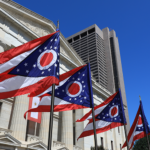- Microsoft, the Redmond-based crown jewel of Washington state’s high-tech economy, announced plans on Monday to construct a massive new data farm near Des Moines — and not the one just south of Seattle in King County, either.
The software giant is proposing to spend more than $677 million on its new West Des Moines, Iowa, data center. Already Microsoft, Facebook and Google have chosen Iowa for data centers.
According to the Des Moines Register, Microsoft’s total investment is expected to exceed $1 billion in Iowa with the new project.
According to an Associated Press story last summer about the trend, industry consultants say Iowa offers “plentiful, inexpensive electricity and policies that alleviate millions of dollars in property and sales taxes.”
Iowa is also a right-to-work state and, although few if any of the newly created data farm jobs will be unionized, allowing workers a choice in the question of organized representation normally contributes to a state’s overall economic livability.
Combined with Microsoft’s current data center in the city, the Alluvion project would bring the company’s total investment in West Des Moines to just under $2 billion.
The company plans to take up 154 acres in West Des Moines’ southeast corner.
In total, Microsoft has plans to construct a 1.16 million-square-foot data center — roughly the size of 20 football fields.
Project Alluvion was originally scheduled to come before the state board in March, but the project’s request was postponed since a property agreement could not be finalized.
During a meeting with the company on Friday, the Iowa Economic Development Authority Board approved granting Microsoft a $20.3 million sales tax rebate for the project. That tax rebate would be available until 2021.
Those state incentives come on top of the $18 million in incentives already promised by West Des Moines.
To receive those incentives, Microsoft has promised to add at least $255 million at minimum in taxable value to the city of West Des Moines.
That minimum value, West Des Moines officials said, would translate to about $8 million annually in property taxes the city would collect from Microsoft once the data center is fully built out.
“This is a staggering amount of property tax dollars,” West Des Moines Mayor Steve Gaer said.
From the state level, Microsoft has to create 84 jobs by full build out, 66 of which must have a wage of $24.32 an hour. That wage is 120 percent of Polk County’s qualifying wage threshold.
In addition to its right-to-work status, Iowa boasts a number of other economic policies that make it more business-friendly than states like Washington. For example:
• 50 percent of a company’s federal taxes can be deducted from Iowa’s corporate income tax;
• Iowa’s single-factor, non-unitary tax is based only on the percentage of total sales income within the state;
• Iowa’s corporate income tax may be reduced or eliminated by state tax credit programs.
• Iowa has sales or use tax on the purchase of industrial machinery and equipment, including computers used for manufacturing or to process data by insurance companies, financial institutions or commercial enterprises such as Microsoft;
• there is no sales tax on materials used in the manufacturing process or purchase of electricity, natural gas, propane or water used directly in the manufacturing process;
• manufacturing machinery and equipment, as well as computers used to process data by insurance companies and financial institutions is exempt from property tax;
• personal property is not assessed for tax purposes — in Iowa, personal property includes corporate inventories of salable goods, raw materials and goods-in-process;
• Iowa is one of only a few states in the nation to consistently offer a refundable research activities credit.
• Iowa has one of the lowest new employer unemployment insurance rates in the nation — 1.9 percent for a three-year period until an experience rating is established — and a zero rate for good experience (approximately 45 percent of Iowa employers are at a zero rate);
• Iowa’s workers’ compensation costs are among the lowest in the nation — 25 percent lower than the national average; and,
• the Regulatory Assistance Program enhances the range of services available to Iowa companies by advising and assisting companies in the preparation and submission of permit application with the Iowa Department of Natural Resources (DNR) and other Iowa regulatory agencies.










